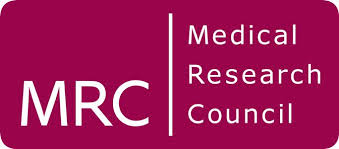
BronchUK Bronchiectasis and the 100,000 genomes project
BronchUK, a MRC funded multicentre partnership in bronchiectasis (www.bronch.ac.uk) are delighted to announce the consortium's very active involvement with the ground breaking 100,000 genomes project.
Bronchiectasis may have a genetic component. It is an exciting time for further study of bronchiectasis and genetics, as the ground breaking 100,000 genomes project has accepted certain forms of bronchiectasis into the list of priority conditions.
Patients in England can now agree (consent) to their blood samples being studied for a possible genetic cause of bronchiectasis.
Members of BronchUK played a key role in piloting “whole exome sequencing” for Genomics England in Cambridge. Subsequently, many consortium members helped in the bidding process for bronchiectasis to be included in the main 100,000 genomes project.
This means patients with bronchiectasis (as outlined in the table below) have the opportunity to contribute to a globally renowned program of better understanding of the genetic aspects to bronchiectasis.
Not all patients with bronchiectasis are deemed eligible to help, as not all cases of bronchiectasis will have a strong genetic aspect to its development.
Bronchiectasis that had an early onset, is aggressive or has certain clinical features such as multiple family members affected, tracheobronchomegaly (Mounier Kuhn Syndrome) or bronchiectasis associated with abnormal sweat sodium levels in the absence of cystic fibrosis are now areas of interest.
If you have bronchiectasis you may wish to ask your health care professionals if you fit any of the categories below.
The sooner patients are entered the more we can learn about bronchiectasis.
The project is due to close by 2017.
Information about taking part is here: http://www.genomicsengland.co.uk/taking-part/
CONSENT & Patient information sheets are here: http://www.genomicsengland.co.uk/taking-part/patient-information-sheets-and-consentforms/
Patients with ANY of the following should be considered potentially eligible and discussed with your local GMC centres:
|
Clinical Features |
Rationale |
|
“severe bronchiectasis” |
“extreme phenotype” |
|
> 4 lobes involved in bronchiectasis and patient aged <50years |
“extreme phenotype” |
|
Recurrent non tuberculous mycobacterial |
“extreme phenotype” |
|
2 or greater immediate family members |
Familial element – particularly welcomed if there are multiple family members alive including some affected with bronchiectasis and others not |
|
High sweat chloride levels test but CFTR |
“extreme phenotype” suggesting underlying defect in flow of salts into the airway affecting mucus (Na+ channelopathy). This will be in the absence of known cystic fibrosis gene mutations |
|
Bronchiectasis with any suspected |
e.g. Bronchiectasis and recurrent extra pulmonary infections. Common variable immunodeficiency is excluded |
|
Bronchiectasis with any suspected |
Young’s syndrome |
|
Known rare “extreme” phenotypes where |
Mounier Kuhn Syndrome (tracheobronchomegaly) |
If you are a healthcare professional looking after bronchiectasis patients you can refer patients into the 100,000 genomes project.
Frequently asked questions are available here: http://www.genomicsengland.co.uk/the-100000-genomes-project/faqs/
To refer patients into this study please contact your regional genetics service: http://www.genomicsengland.co.uk/taking-part/genomic-medicine-centres/
Contact details are available here:
- East of England NHS Genomic Medicine Centre:
Led by Cambridge University Hospitals NHS Foundation Trust.
Send an email to the East of England NHS Genomic Medicine Centre (opens in your email application).
Visit the East of England NHS Genomic Medicine Centre website (opens in new window).
- Greater Manchester NHS Genomic Medicine Centre:
Led by Central Manchester University Hospitals NHS Foundation Trust
Talk to a member of the Manchester GMC team, based at Saint Mary’s Hospital in Manchester, on 0161
276 6506.
- North East & North Cumbria NHS Genomic Medicine Centre:
Led by Newcastle upon Tyne Hospitals NHS Foundation Trust.
Send an email to the North East & North Cumbria NHS Genomic Medicine Centre (opens in your email
application).
- North Thames NHS Genomic Medicine Centre:
Led by Great Ormond Street Hospital NHS Foundation Trust.
Send an email to the North Thames NHS Genomic Medicine Centre (opens in your email application).
Visit the North Thames NHS Genomic Medicine Centre website (opens in new window).
- North West Coast NHS Genomic Medicine Centre:
Led by Liverpool Women’s NHS Foundation Trust.
Send an email to the North West Coast NHS Genomic Medicine Centre (opens in your email application).
Visit the North West Coast NHS Genomic Medicine Centre website (opens in new window).
- Oxford NHS Genomic Medicine Centre:
Led by Oxford University Hospitals NHS Trust (OUH)
Send an email to the Oxford NHS Genomic Medicine Centre (opens in your email application).
- South London NHS Genomic Medicine Centre:
Led by Guy’s and St Thomas’ NHS Foundation Trust.
Send an email to the South London NHS Genomic Medicine Centre (opens in your email application).
- South West NHS Genomic Medicine Centre:
Led by Royal Devon & Exeter NHS Foundation Trust.
Send an email to the South West NHS Genomic Medicine Centre (opens in your email application).
Visit the South West NHS Genomic Medicine Centre website (opens in new window).
- Wessex NHS Genomic Medicine Centre:
Led by University Hospital Southampton NHS Foundation Trust.
Contact via the Wessex NHS Genomic Medicine Centre website (opens in new window).
- West Midlands NHS Genomic Medicine Centre:
Led by University Hospitals Birmingham NHS Foundation Trust
Send an email to the West Midlands NHS Genomic Medicine Centre (opens in your email application).
- West of England NHS Genomic Medicine Centre:
Led by University Hospitals Bristol NHS Foundation Trust.
Send an email to the West of England NHS Genomic Medicine Centre (opens in your email application).
Visit the West of England NHS Genomic Medicine Centre website (opens in new window).
- West London NHS Genomic Medicine Centre:
Led by Imperial College Healthcare NHS Trust
Send an email to the West London NHS Genomic Medicine Centre (opens in your email application).
- Yorkshire and the Humber NHS Genomic Medicine Centre:
Led by Sheffield Teaching Hospitals NHS Foundation Trust.
Send an email to the Yorkshire and the Humber NHS Genomic Medicine Centre (opens in your email application).

